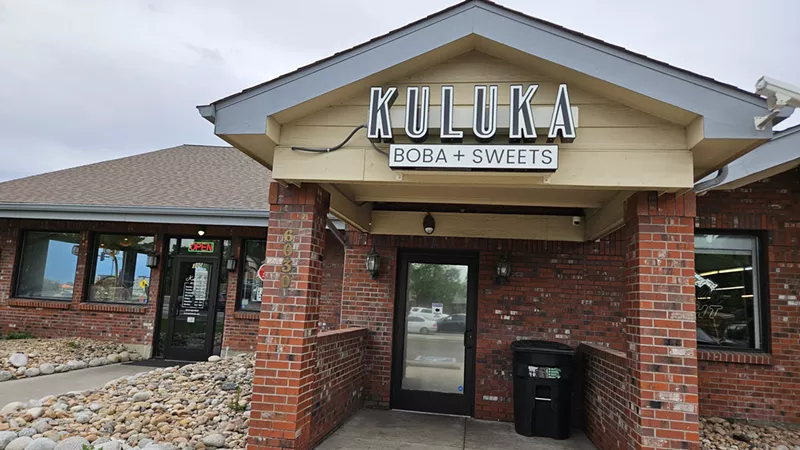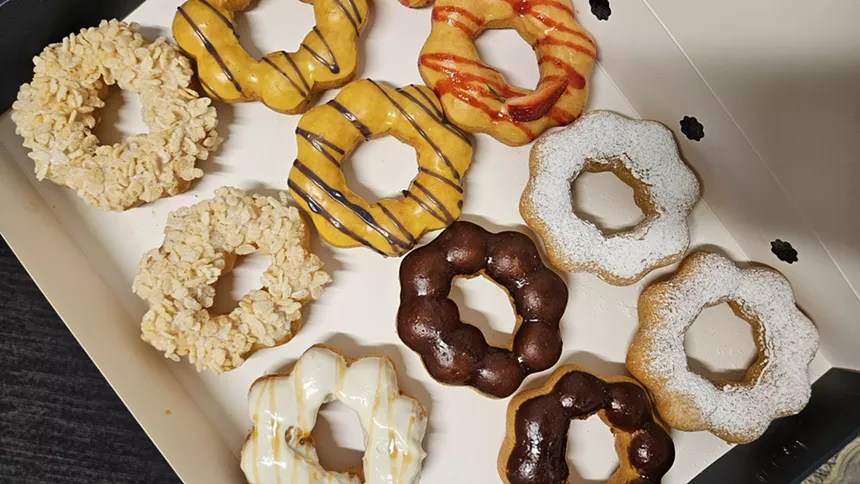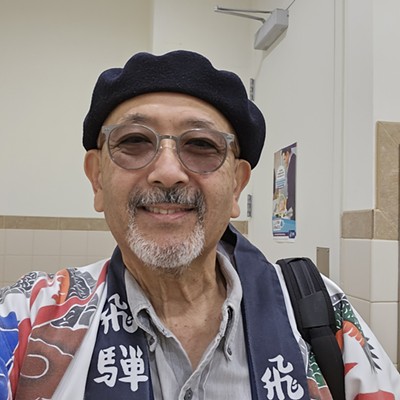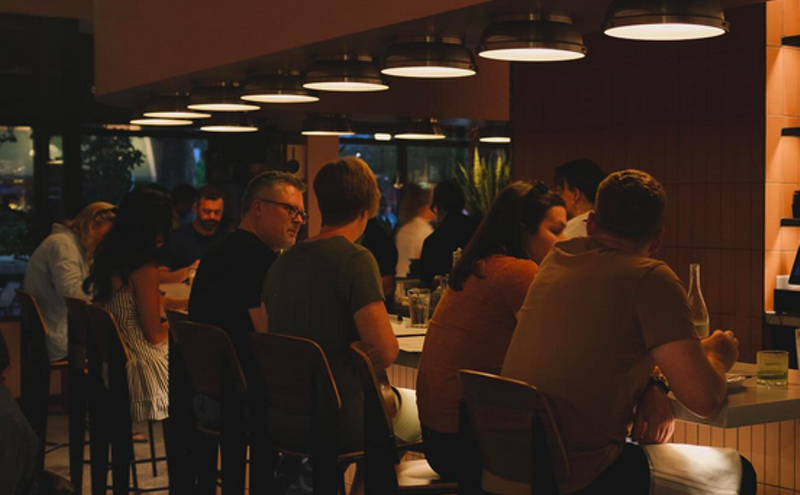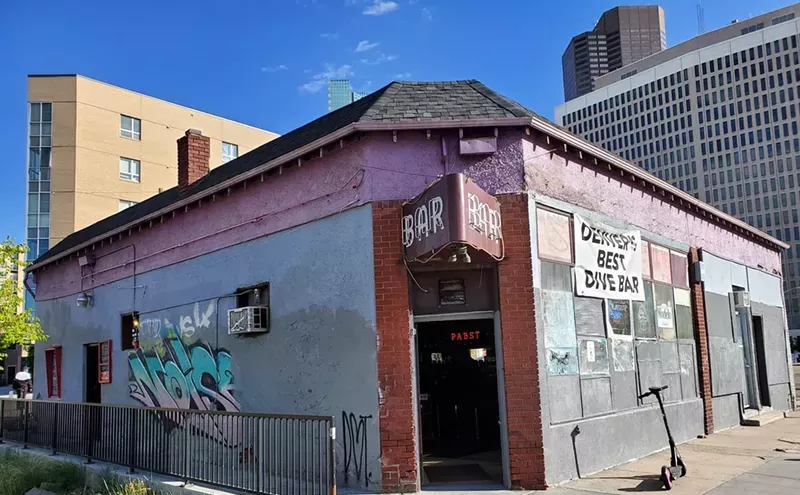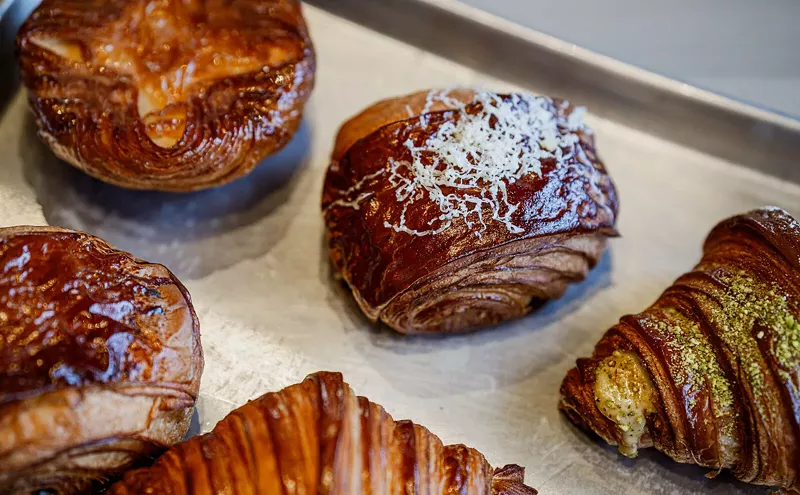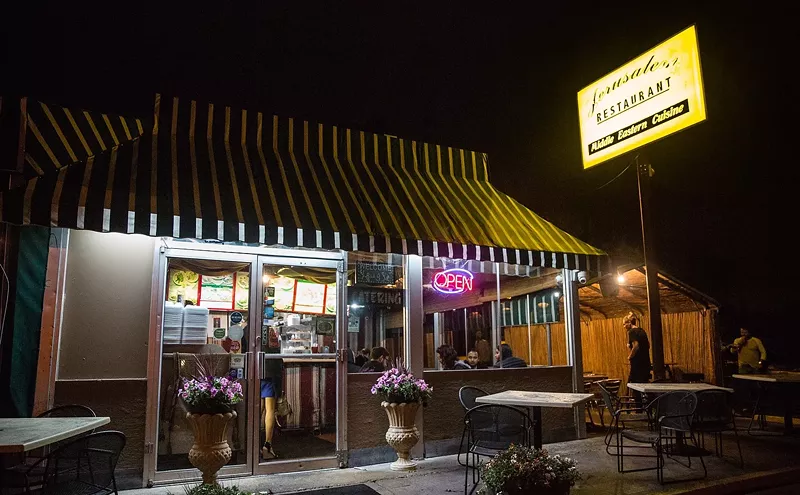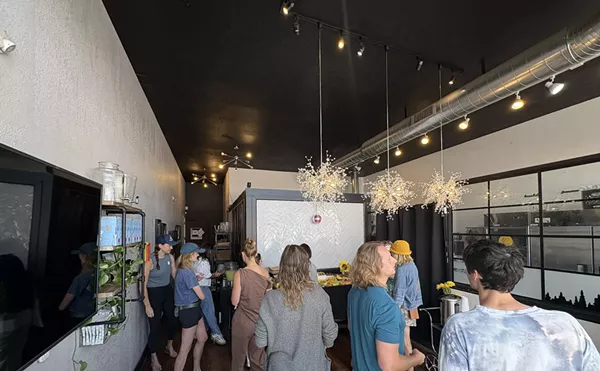Today we eat them but don't make a big deal of them, except maybe on National Doughnut Day. The deep-fried snacks are now all-American and available at every supermarket and sold by chains like Dunkin' Donuts (the company that decided "doughnuts" was too many letters and popularized the shorter term), Krispy Kreme Doughnuts and even hip newer spots like Voodoo Doughnut. But those places all traffic in the typical round sugar bombs we've come to know and love.
But doughnuts can evolve, and the new kids on the block give doughnuts an Asian turn with mochi doughnuts. They combine the soft, pillowy chewiness of Japanese mochi with the satisfying handheld sweetness of doughnuts.
The first "mochi doughnut" was invented in 1992 by a baker in Hawai'i, who mixed mochi rice flour with poi or mashed taro root. A decade later, the idea of a mochi doughnut was mainstreamed by the Japanese franchise of Mister Donut, an American chain, which mass-produced mochi doughnuts. They caught on, making Mister Donut a foodie destination for American tourists. Now, mochi doughnuts have crossed the Pacific to become a hit in America.
Particularly in Westminster.
In the midst of utter suburbia, half a block from a Costco in a building that once housed a Marie Callender's family restaurant and pie shop, you'll find Kuluka, an independent, women-owned doughnut and boba shop. Like Mister Donut in Japan, which calls them "Pon de Ring," Kuluka makes its mochi doughnuts as circles of balls that are easy to pull apart and pop into the mouth.
Unlike at Mister Donut, these are made tray by tray, always with care and love in keeping with the shop's name: "Kuluka" is Hmong for "I love you."
When Bao Phommatha and Julia Vang decided several years ago that they wanted to open a business together, a mochi doughnut shop was the farthest concept from their minds. "We just came together and had some notes of what we thought were good ideas," Phommatha recalls. "And Julia had the idea of doing a boba shop. And I'm like, 'Are you crazy? Have you worked in the food industry before, like, like, more than, you know, twenty hours a week?' She's like, 'Well, I worked at McDonald's for like, twenty minutes.'"
The two have been friends for years, having grown up in Westminster's Hmong community. "Growing up as teenagers, we worked in fast food. That's about the only experience we have. But in our culture, we are very used to cooking for big masses of people," Phommatha says. That includes family gatherings, community events and festivals. Because of the history of the Hmong community — tribal clans in Southeast Asia that lived in the mountain regions of Laos and Cambodia, and fought for the U.S. against North Vietnam before coming to America as refugees — hard work is baked into their cultural DNA.
Still, neither of them had real food service experience: Phommatha worked in the tech industry, Vang was in finance, and the two had run a tax company for a decade. But not a restaurant, coffeeshop or, god forbid, a mochi doughnut shop.
"We had a little bit saved up and we're like, you know, what do you want to do with this?" Phommatha says, and despite their lack of experience in the food business, "Julia and I do share a love of food," she acknowledges.
So they moved forward with boba tea. But boba shops have become so popular over the past couple of decades that they knew they had to come up with a differentiator. That's when they settled on mochi doughnuts. They liked the ones sold at Dochi, a link in an international chain that has since pulled out of Colorado, but it was a pain to drive down to RiNo from Westminster every time they wanted some.
And while boba shops abounded, there weren't many choices for milk teas in their part of the metro area, and the two wanted to serve their own flavors. "It wasn't that we were trying to do anything really different," Phommatha says. "We just wanted to put our spin on it because we've tasted many things from the East Coast, from the West Coast. And we're just trying to bring some of that here to Colorado without having to go so far to taste it, especially up north, you know, where we are."
As it turned out, Kuluka was their karma. "Kuluka is now two-and-a-half years old," Phommatha says, a little cautiously. "It's still a baby operation, but we made it past our first year. That's very important."
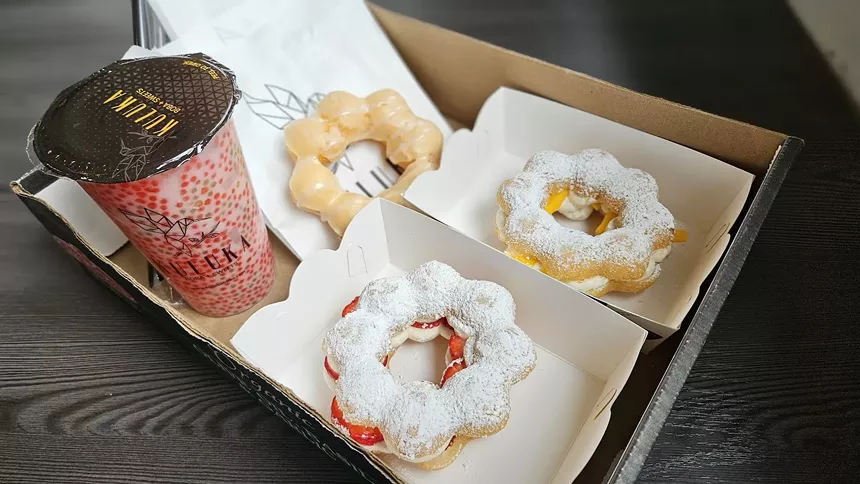
Naab Vaam Hmong coconut tapioca drink with mochi doughnuts cream sandwiches (mango and strawberry) and Peaches & Cream mochi doughnuts at Kuluka for 2024 Mile High Asian Food Week.
Gil Asakawa
So you may find tiramisu doughnuts in the Kuluka case some days. Another favorite flavor is a fall treat. "Yeah, so every fall we have a Daffy apple, a caramel apple," she says. "We get inspired by things that are flavors that are in season, like the fruits that are in season. So a lot of times you'll see strawberries and raspberries, things that are fresh."
Everything at Kuluka is fresh, though, including the doughnuts. "We make all of our icings from scratch. We make it every day or two. We want to make sure that everything is fresh and that there's really a high quality of things that we put out to our customers," notes Phommatha.
The doughnuts are made with a combination of mochi rice flour, tapioca starch and wheat flour. "Our recipes are not different from other places," she adds. "I think the only difference with us is, you know, the temperature we cook it at. Basic, simple, we all use the same ingredients, just different quantities. That's it."
The recipes were developed at home by Phommatha and Vang, who tried them over and over. "For about a year and a half, my house was the test kitchen, and it was basically, halfway through COVID, I quit my day job," Phommatha recalls. "I had all of our ingredients lined up in my kitchen along the wall. It was like all the boba stuff, all the doughnut stuff. It was not pretty. Once I came up with a couple of different variations, we would have our friends and family come through and try, and then we would kind of just fine-tune things from there."
They were driven by the the Asian value of perfectionism. "Even until the day that we opened, we didn't have things 100 percent fine-tuned, but it wasn't that it wasn't great," she says. "We were just very nitpicky and nothing's ever perfect enough. Even my kids were just talking about it the other day, how like, 'Mom, do you remember when you had all of your products sitting there and we couldn't touch anything?'"
Now that Kuluka is in its toddler stage and on track to continue growing, Phommatha and Vang are like proud parents. "I tell myself we were really naive. If you were to tell me five years ago I was going to open a mochi doughnut shop, I'd be like, are you crazy? There's no freaking way," Phommatha says. "I think some of it is just being naive and hoping for the best because we're not a franchise. We're not nationally known. We're really a mom-and-pop shop. We only have the one shop, and we kind of just held our breath hoping that we would do well."
They did well because they do everything well. Most of the shop's staffers are young people from the Hmong community, and they all put a lot of care into the products.
"With our doughnuts, we knew that a lot of places make it in large quantities, right? So they can have it sitting there for many hours," Phommatha explains. "For us, high quality is a big standard to aim for. So we have someone there making the mochi doughnuts all day. We have one dedicated person making them."
If a certain tray in the display case is out of a flavor, wait a few minutes: A new batch will soon come out.
Made with love.
Kuluka Boba + Sweets is located at 6030 West 92nd Avenue in Westminster; they're open 9 a.m.-9 p.m. every day. Learn more at kulukaboba.com.

